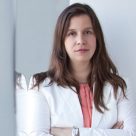
Heike Harmgart
EBRD Country Director for Jordan
Finance / Jordan
“Fintech is definitely a good investment opportunity in Jordan”
The European Bank for Reconstruction and Development (EBRD) has an active presence in Jordan, having completed 42 projects and invested over €1 billion euros in Jordan. The Business Report met up with the EBRD’s Country Director for Jordan Heike Harmgart in Amman to ask what investment opportunities are up next for the influential development bank, especially in tourism, fintech and energy.
What kind of potential does Jordan have in fintech?
There is a lot of fintech and blockchain companies coming out of accelerators, so fintech is definitely a good investment opportunity in Jordan. For example, there is a finance platform called Liwwa, which is a B2B lending platform. The Central Bank now has a fintech sandbox and a specialized committee on fintech working with all the banks. For fintech startup companies like Liwwa, in terms of regulations – there are no new regulations yet for new fintech.
How is the EBRD getting involved in tourism development?
We started investing in the Ayla Oasis project in Aqaba, which has not only the potential to attract further foreign direct investment and tourists, but also create sustainable jobs in the private sector. We are currently working with a number of tourism developers to set up a training center for tourism skills in Aqaba.
How is the EBRD supporting private sector growth in tourism?
We see hospitality and retail as great growth opportunities in Jordan. This is why we started financing various projects on different scales, such as a shopping mall in Amman and a training center for retail skills. We have since trained several hundreds of Jordanians in order for them to find jobs in the retail sector.
What is your strategic vision for EBRD in Jordan?
In recent years, Jordan pioneered what can be achieved in renewable energy, especially solar and wind. We have witnessed Jordan develop both a legislative framework and implement several bankable power purchase agreements. This has allowed them to attract foreign investments and move from feed-in-tariffs to a competitive reverse auction, which has been a massive achievement that the EBRD has supported from day one. Half of what we invested was in the energy sector, given that Jordan did not has indigenous energy resources.
